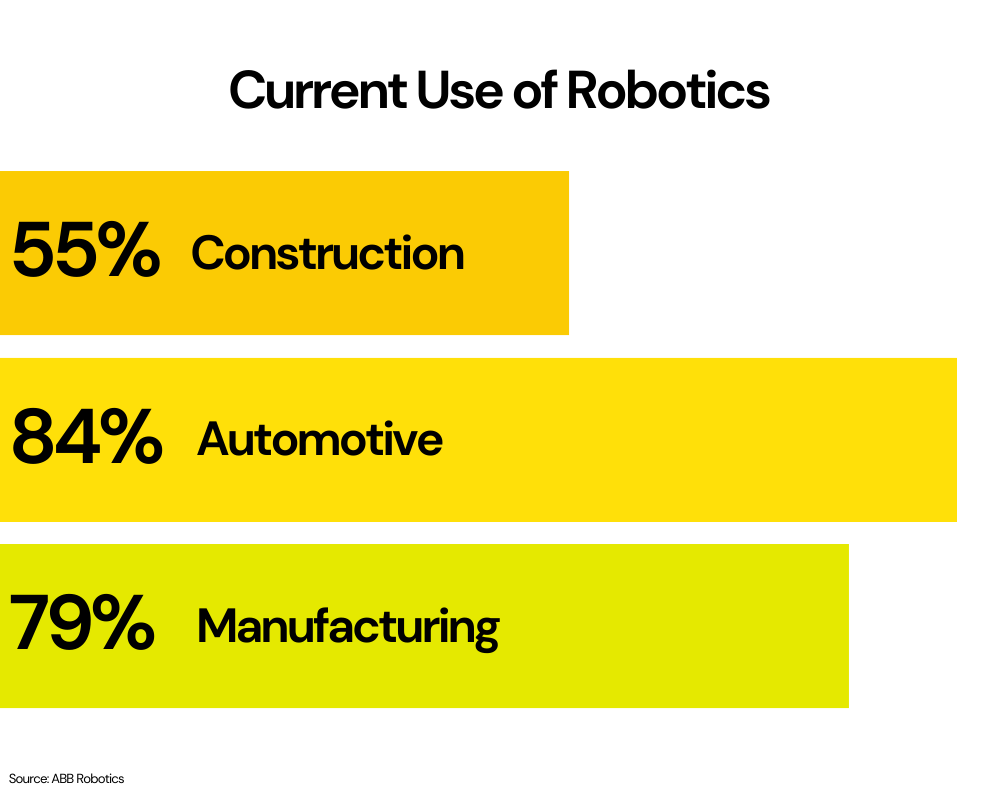Impact of Automation in the Construction Industry
Automation in construction represent a revolutionary shift in the industry, offering innovative solutions that optimize processes, improve efficiency and reduce costs. As more companies adopt technologies such as robotics, modular production, and 3D modeling, the sector is adapting to new ways of working that are faster, safer and more sustainable.
Why is automation key to the future of construction?
The impact of automation in the construction industry is becoming increasingly evident. The integration of digital construction tools such as BIM (Building Information Modeling) and advanced robotics systems not only optimize project planning and execution, but also allows companies to save time and resources. Automation does not replace workers, instead, it enables them to focus on areas of greater strategic value by taking on repetitive or high-risk tasks.

Main areas of automation in construction

1. Robotics for on-site tasks
Robotics in construction is transforming the way tasks are carried out on-site. From bricklaying to autonomous excavation, robotics enhances precision and reduces human error. Examples such as robotic bricklayers and autonomous excavators are reshaping traditional construction methods, improving both productivity and safety.

2. Modular production and 3D printing
Modular production and 3D printing in construction make it possible to create building components off-site, speeding up delivery times and reducing material waste. Companies using 3D printing are manufacturing everything from homes to complete structures more quickly and at lower cost.

3. Digitization of design, planning and management
Digitalization is essential for improving accuracy and collaboration in construction projects. With tools like BIM and platforms like Buildpeer, teams can efficiently manage projects, preventing delays and optimizing resources.

Benefits of automation for companies and workers
Automation in construction not only benefits companies by reducing costs and delivery times, but also improves workplace safety by eliminating dangerous and repetitive tasks. Workers, freed from hazardous manual labor, can focus on higher-value tasks, increasing both job quality and satisfaction.
How Buildpeer drives digital transformation in construction
Buildpeer is a platform designed to centralize and optimize construction project management. With its digital tools, such as construction data management and the predictive analysis of delays, Buildpeer helps companies integrate automation effectively, maximizing efficiency at every stage of the project.
Challenges and Barriers to Adopting Automation
Despite its clear benefits, the adoption of automation in construction faces some challenges. The initial investment in advanced technologies and the lack of specialized training in certain areas are among the obstacles slowing down faster adoption. However, as the advantages of automation in construction projects become more evident, companies are increasingly willing to overcome these barriers.
Conclusion
Automation in construction paves the way to a more efficient, safer, and profitable future. With the advancement of robotics, modular production and digital tools like Buildpeer, the construction industry is well-positioned to tackle tomorrow's challenges. Adopting these technologies not only optimizes processes, but also creates a safer and more productive work environment for everyone involved.
Frequently Asked Questions
Does automation replace workers?
No, automation in construction does not replace workers. Instead, it supports them by taking on repetitive and dangerous tasks, allowing teams to focus on higher-value activities.
What real-world examples of robotics exist in construction?
Notable examples include the SAM100 robotic briclayer, which automates brick placement,, and Built Robotics' autonomous excavators, which perform excavations and grading with high precision.
How does modular production help reduce costs and time?
Modular production allows components to be assembled off-site, which shortens on-site construction time and reduces material waste, resulting in faster and more cost-effective delivery.
What digital tools optimize project management?
Platforms like Buildpeer and tools such as BIM enhance collaboration, planning and management in construction projects, helping reduce errors and delays.
How can a construction company start implementing automation?
Begin by evaluating your company's needs, investing in the right technologies such as BIM, robotics or modular production, and training your team to adapt to new work methods.

